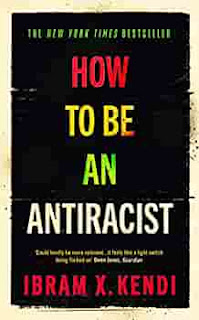As I thought and thought, I read some responses and realized my answer was what many replied. We never had a black male teacher, and we didn't even realize that.
Although I never met him personally, I consider Ibram X. Kendi a much-needed teacher to me. I highly recommend Kendi's How to Be an Antiracist (2019).
When I was growing up, I lived in racial ignorance and power-structure ignorance. I thought racism was a choice. Some people were kind and not racist; others were mean and racist. Boy, I hardly knew anything and acted like I had answers for something I knew nothing.
You're either racist or antiracist, and those traits are not fixed. You can be racist one minute and antiracist the next. To me, that's a huge point in my effort to be an antiracist. At first glance, it might appear simple, but in reality being an antiracist is complex and fluid.
Perhaps my biggest takeaway from Kendi's book is how little I know about the actual diverse lived experiences of African-Americans. Philosophically, I think I understand a lot. I understand that "systemic racism" and "institutional racism" are redundant. However, I don't know if I can fully understand the microaggressions against and internalized racist feelings of African-American individuals because I don't experience those myself.
I responded to the social commentary part of the How to Be an Antiracist, but perhaps I responded to Kendi's lived experience even more. He explored the intricacies of his life and dealing with cancer. I appreciate his honesty and vulnerability and his explanation of the complexity of his identity.
Gosh, I suppose that hints at what I responded to so much. While it might sound simple to be an antiracist, our identities are so complex that it is not that easy. And can we actually separate ourselves from our racist systems, or better yet, can we actually improve those racist systems?
Pick a system. The criminal-justice system, health care, education, corporate America, the list goes on and on. I can't think of one that isn't inherently racist. I want to be optimistic, but improvement appears so daunting, it's pretty darn difficult.Personally, I sometimes get mad at myself for how myopic, and sheltered, of a view of race I used to have — and still have on some level. I have learned not to go out of my way for awkward race talks because nobody wants a race talk initiated by a middle-aged Polack. I am making a concerted effort to listen more and absorb what I can. Striving to be an antiracist is part of my identity.
At first, I resisted the basic premise of How to Be an Antiracist. Is it that simple? Either you're a racist or antiracist, no other options? But as I read the book, I realized it is correct. The opposite of racist wouldn't be "not racist." It indeed would be antiracist.
The book came out before the George Floyd tragedy and before Black Lives Matter got its merch on Nike apparel. Kendi's point is right: You're either for Black Lives Matter or you're not. I say get BLM merch in the corporate world as much as possible.
Of course, the United States could be lauded for being the capitalistic, economic power that it is. But to get here, we've had an ugly history of violence, oppression and cruelty. Hopefully, we are no longer hiding from that history, but understanding it better and taking antiracist actions that actually work.


No comments:
Post a Comment